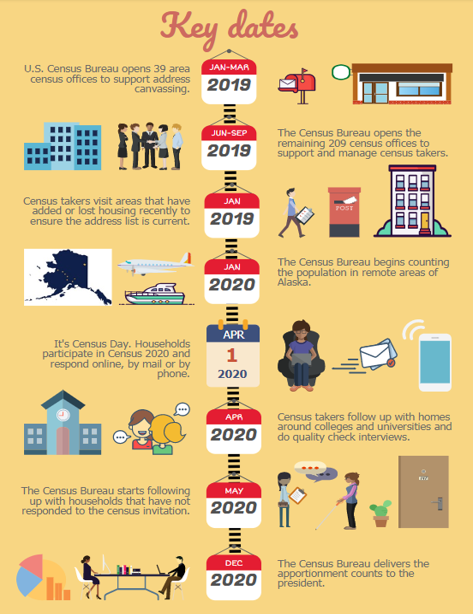By Alexander Chan
Northwest Asian Weekly
 Starting in mid-March, every household in the United States will receive an invitation in the mail to complete the 2020 Census. The census will include questions about the race, sex, and age of every person in the household.
Starting in mid-March, every household in the United States will receive an invitation in the mail to complete the 2020 Census. The census will include questions about the race, sex, and age of every person in the household.
Mandated by the U.S. Constitution to count all persons, both citizens and non-citizens, every 10 years, the federal government uses the information collected to make public policy decisions.
Toby Nelson, a media liaison for the U.S. Census Bureau in the Northwest, told Northwest Asian Weekly that “[f]ederal funds, grants, and support to states, counties, and communities are based on population totals and breakdowns by sex, age, race, and other factors. More than $675 billion per year in federal funds spent on schools, hospitals, roads, public works, and other vital programs is based on Census headcount data.” The new data could also lead to dramatic changes in how congressional seats and Electoral College votes are allocated in each state.
Some data suggests that Asian Americans will most likely be undercounted.
Karthick Ramakrishnan, a professor at UC Riverside and founder of AAPI Data, and Janelle Wong, a professor at the University of Maryland and a research fellow at AAPI Data, highlighted a 2019 report from the Census Bureau as a reason to be concerned about a potential Asian American undercount in the 2020 Census.
This report revealed the results of a survey conducted with over 17,000 participants, including 1,023 Asian Americans.
Ramakrishnan and Wong said the survey found that “Asian Americans were the least likely of any racial group to report that they intended to complete the [census]” and that “Asian Americans were also the least likely to express familiarity with the census.”
Additionally, over two-fifths of the Asian American respondents expressed concern that their answers to the census “will be used against them” and that only a bare majority ”believed that the census information would benefit them personally.”
Asian Americans may be less likely than other demographic groups to complete the census because according to Ramakrishnan and Wong, they are the “only racial group in the United States that is majority foreign-born.” Language barriers are another challenge as AAPI Data shows that Asian Americans have the highest percentage of people with “limited English proficiency.”
Asian Americans Advancing Justice (AAJC), an Asian civil rights organization, say that Asian Americans, Native Hawaiians, and Pacific Islanders “have been undercounted [by the census] for decades” because they “live in hard-to-count census tracts.”
The Census Bureau disputes that Asians have been undercounted.
“[The Census Bureau] did not measure a statistically significant undercount for the Asian or for the Native Hawaiian and Other Pacific Islander populations in either 2010 or 2000,” Nelson told the Northwest Asian Weekly.
Nelson added that the Census Bureau is aggressively taking steps to ensure that Asian Americans will be included in the 2020 Census.
“In 2020, the Census Bureau will, for the first time ever, offer an online response option in addition to mailback response and response via 800 number.”
Nelson said the Census Bureau will provide language support in 59 non-English languages, including Asian and South Asian languages. In Washington state, the Census Bureau has employed partnership specialists to develop ties with Asian American community and faith leaders who can communicate the importance of the census to their constituents.
The Census Bureau will also rely on television, radio, and digital and social media to emphasize the need to complete the census.
Seattle-based TDW+Co received a contract from the Census Bureau to create a national advertising campaign aimed at increasing participation among Asian Americans. These advertisements will be targeted at Asian Americans and played in a variety of Asian languages.
Alexander can be reached at info@nwasianweekly.com.



